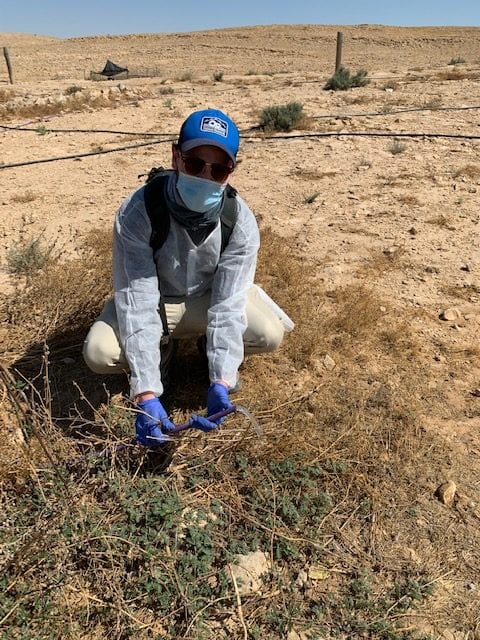The Arava Institute conducted a 12-month study to test wastewater in Bedouin villages for COVID-19.
Detection of the coronavirus in wastewater can help identify outbreaks early, isolate hot spots, and prevent the spread of disease. This can help officials know when to end lockdowns and when to reinstate them. It provides more efficient and useful data than individual testing, because wastewater reveals the virus levels of the entire community’s population, including asymptomatic carriers.
Researchers in the US, the Netherlands, Israel, and Palestine are just starting to learn how to use wastewater COVID-19 testing to track the spread of the disease. However, those studies are focusing on large urban populations with centralized wastewater treatment.
The Arava Institute’s research focuses on off-grid Bedouin villages whose wastewater remains untreated or poorly treated, left flowing in the environment, or collecting in poorly managed cesspits—which may mean that residents are at a higher risk of COVID-19 infection.
This study will contribute to the greater scientific community’s understanding of how this viral disease spreads in remote areas. It will also benefit these vulnerable Bedouin populations by guiding the public health response and translating research findings into evidence-based policies, with the help of focus groups in the communities and local public health experts.
This project has been funded by a generous Jewish National Fund (USA) donor.
Read the study’s first report from October 2021.
A second report was published in May 2023 in Frontiers in Water. Read online here, and in PDF format, here.


